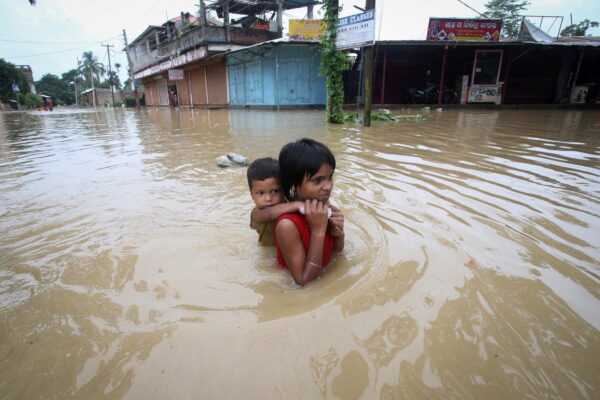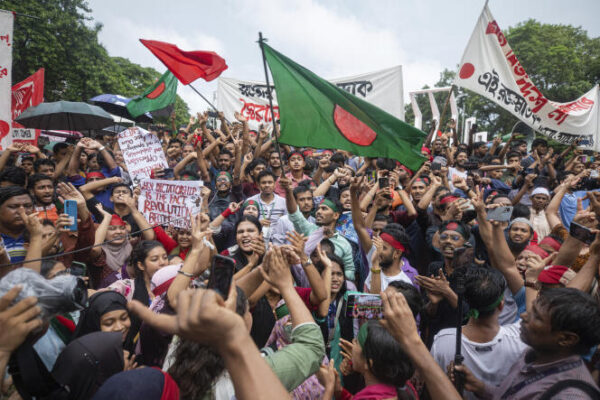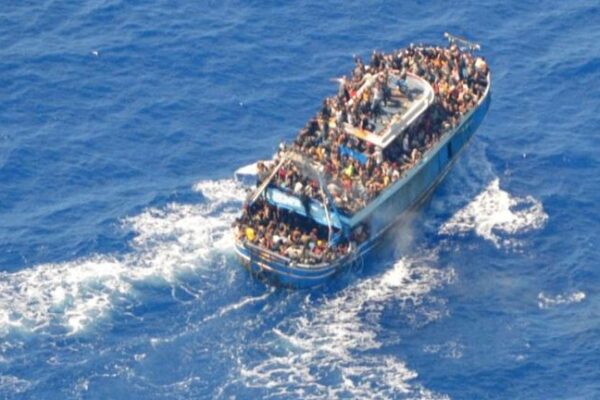There were reportedly many instances of force and coercion when it came to signing up to relocate to the island, according to human rights groups. 12 families have so far stepped forward and admitted that while their names were on the list for relocation, they had not willingly volunteered to move.
There were reportedly many instances of force and coercion when it came to signing up to relocate to the island, according to human rights groups. 12 families have so far stepped forward and admitted that while their names were on the list for relocation, they had not willingly volunteered to move.
New reports have emerged that have exposed the worrying issue of Bangladesh apparently forcibly relocating Rohingya refugees onto the remote Bhasan Char island. Human rights organizations are calling upon the Bangladesh government to halt the relocation, citing severe concerns over the island’s accessibility to adequate health care and safe living conditions.
With reports of lack of consent and a concentrated effort on deceiving refugees into moving onto the island where they would then not be allowed to leave, Bangladesh is reportedly in the process of currently moving more than 1,600 Rohingya refugees. According to Human Rights Watch, there are an additional 4,000 Rohingya refugee names on a list procured by the government who will be forced to relocate to the island.
There were also reportedly many instances of force and coercion when it came to signing up to relocate to the island, according to human rights groups. 12 families have so far stepped forward and admitted that while their names were on the list for relocation, they had not willingly volunteered to move.
One refugee, speaking to Human Rights Watch, stated: “I have no idea how my name appeared there, but I never voluntarily put my name on that list. I only learned I was on the list after the Camp-in-Charge (CiC) called me to his office and told me. After that, I fled from my shelter. I am hearing now that the CiC volunteers and majhis (community leaders) are looking for me and my family. I am afraid that if they find me, they will force me to go.”
Another refugee stated:
My name appeared on the list so now the Camp-in-Charge has threatened me, saying that since my name is there, I must go. He said even if I die, they will take my body there [to Bhasan Char island]. I don’t want to go to that island.”
There have also been examples of the Bangladeshi government deceiving Rohingya refugees into signing up to be relocated to the remote island, including allegations that if the refugees agreed to move to the island, they would be given priority to repatriate to Myanmar. Another allegation is that if relocated to Bhasan Char island, all refugees would be given 5,000 taka (or about $60), and would have the choice to choose livelihood opportunities such as fishing or farming, something that has been denied to them in Bangladesh. Refugees were also apparently told that they would have better access to health facilities and that their children would all get free education.
This has all been an abusive deception, reportedly, as human rights groups point towards the worrying conditions of the island with little to no adequate health care, “prison-like facilities“, and a lack of freedom of movement. There are reportedly already 300 Rohingya refugees on the island, who are organizing a massive hunger strike and “pleading to be allowed to leave the island and return to the camps in Cox’s Bazar”. There have also been videos of screaming women, begging to be allowed to return to the mainland after Bangladesh took a group of camp leaders to survey the island in September.
According to one refugee, the closest hospital “is a minimum three-hour journey by boat”, highlighting the severely worrying issue of the island being inadequate for housing thousands of refugees.
The United Nations as well has ordered Bangladesh to halt this transfer of refugees, stating on December 2nd that they had not been involved with the government of Bangladesh in preparing for this massive relocation of refugees and that “any relocations to Bhasan Char should be preceded by comprehensive technical protection assessments”.
Focusing on lack of transparency, Amnesty International’s South Asia campaigner Saad Hammadi stated:
It is crucial that the Bangladeshi authorities let the UN, rights groups, and humanitarian agencies carry out independent assessments of Bhasan Char’s habitability first before taking any steps to relocate people there. No relocation plan, either to Bhasan Char or to another location, can be undertaken without the full and informed consent of the individuals involved.”
There are currently more than a million Rohingya refugees living in Bangladesh’s Cox’s Bazar region, with the Kutupalong refugee camp located in Cox’s Bazar now the world’s largest refugee camp. Rohingya Muslims have been fleeing Myanmar’s brutal genocide – and have witnessed the horrifying ethnic cleansing and rampaging of their home state of Rakhine by Myanmar state officials, heightened since the 2017 conflicts of the region.
The UN has since accused Myanmar of harboring military commanders guilty of conducting genocide, alongside reports of entire Rohingya villages being demolished, with scores of innocents subject to death, torture, and mass rape. The UN’s Independent International Fact-Finding Mission on Myanmar stated in August of last year: “The Myanmar army’s tactics were] grossly disproportionate to actual security threats…military necessity would never justify killing indiscriminately, gang-raping women, assaulting children, and burning entire villages”.
Fleeing ethnic cleansing in Myanmar, hundreds of thousands of Rohingya Muslims continue to pour into Bangladesh to seek asylum. However, as Bangladesh continues on its path of forcibly relocating Rohingya refugees, it remains to be seen what the fate of those moved to the remote island will be.





